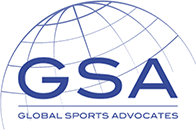 Sports governing bodies play a vital role in promoting their sport while helping athletes succeed at the highest levels of national and international competition. They define the way their sport operates through its affiliated teams and clubs. As international sports governance attorneys of sports law, we can help you develop your governing body’s rules, bylaws, and procedures according to recognized best practices and ensure they are interpreted and carried out in a way that is fair to all parties involved, using our comprehensive sports governance checklist.
Sports governing bodies play a vital role in promoting their sport while helping athletes succeed at the highest levels of national and international competition. They define the way their sport operates through its affiliated teams and clubs. As international sports governance attorneys of sports law, we can help you develop your governing body’s rules, bylaws, and procedures according to recognized best practices and ensure they are interpreted and carried out in a way that is fair to all parties involved, using our comprehensive sports governance checklist.
Elements of Effective Sports Governance Checklist
While this sports governance checklist is not all-inclusive, it provides a strong starting point for thinking about the different governance issues an organization faces in terms of rule compliance, interpretation of policies, transparency, and accountability.
- The governing body’s vision, mission, values, and strategic objectives are clearly defined.
- Statutes, rules, and regulations can be easily accessed by athletes, coaches, and other stakeholders.
- Members of executive bodies are fairly elected with clear procedures.
- There is an established conflict of interest policy.
- Athletes have a fair opportunity to be represented on the Board of Directors.
- Members meet regularly, and there are formal reports made.
- There is a procedure for members to add items to the meeting agenda.
- There is a procedure for ensuring compliance with applicable laws such as the Ted Stevens Olympic and Amateur Sports Act, World Anti-Doping Code, the IOC Code of Ethics, and/or other applicable national or international regulations.
- There are confidentiality rules in place to protect “whistleblowers” who come forward to report misconduct.
- There is a procedure for investigating threats to sports integrity.
- The decisions of disciplinary bodies and related sanctions are publicly available.
- Rules are upheld equally so that no party is seen as being above the law.
- All athletes are given an equitable opportunity to succeed, and there are anti-discrimination policies prohibiting discrimination based on racial, religious, or sexual orientation.
- There is a clear internal appeal mechanism for challenging decisions with the potential to adversely affect an athlete’s opportunity to participate in their chosen sport.
- There are policies and mechanisms in place to keep commercial interests from overriding sporting regulations regarding issues such as the selection of event hosts.
- There is a transparent process to determine the allocation of organizational resources.
- The use of distributed funds is monitored and audited.
- There is clear documentation of income and expenses. (In the U.S., for example, national governing bodies are registered as 501(c)(3) organizations and must fulfill specific requirements to maintain tax-exempt status).
Are You in Need of Assistance? Contact Our International Sports Governance Attorneys Today!
Good sports governance principles must encompass the specific needs of the relevant organization, including differences in existing rules in place across international boundaries. Our International sports governance attorneys have worked with governing bodies from around the world to establish best practices, ensure regulatory compliance, provide advice resolving crisis management, and handle internal disputes with member federations.
If you have questions about governance practices or need help resolving a specific issue related to your sports governing body, our experienced International sports governance attorneys can help. Please contact us online or call us directly at +1-207-747-5899 to schedule your initial 1 hour consultation.
